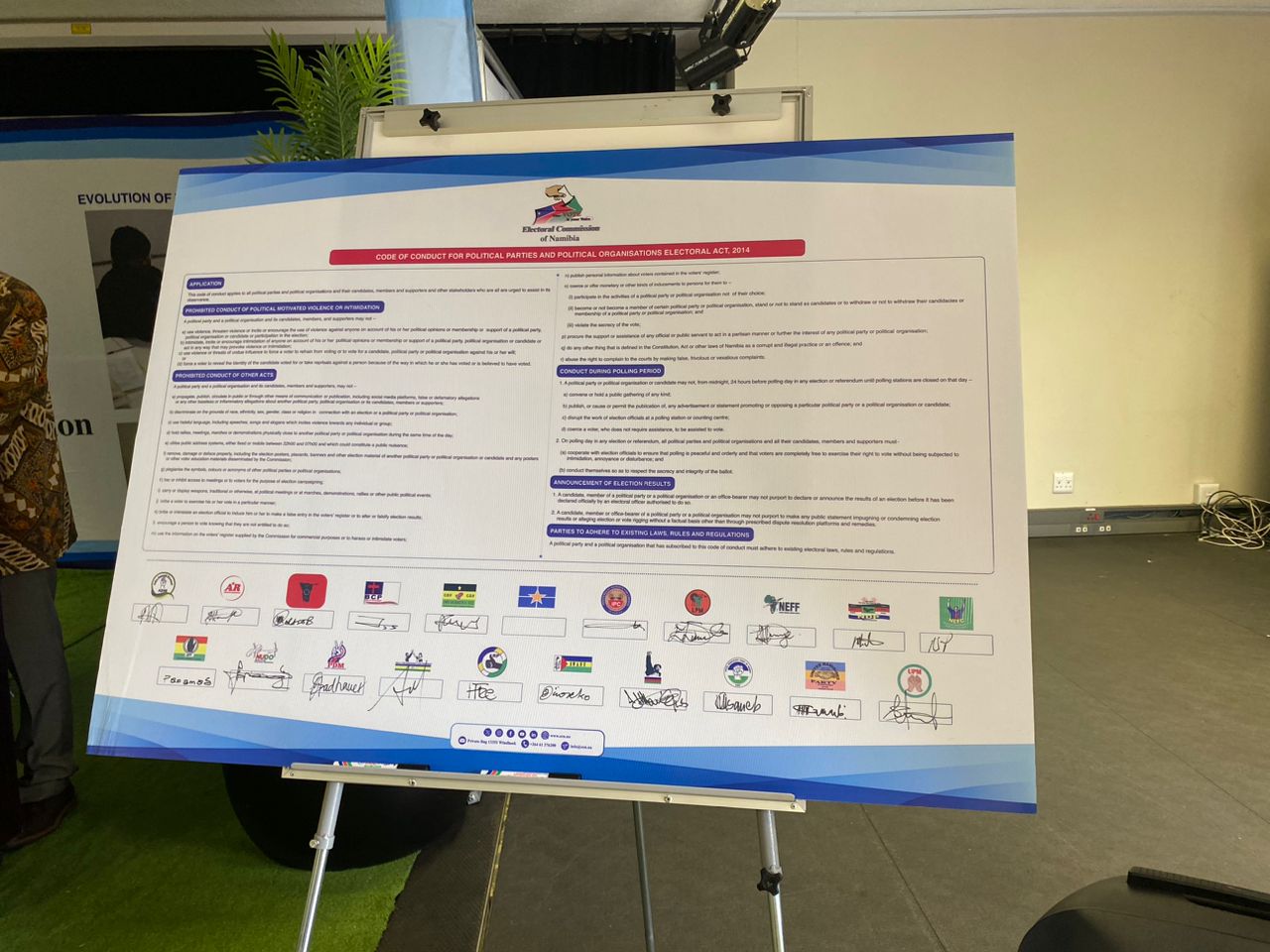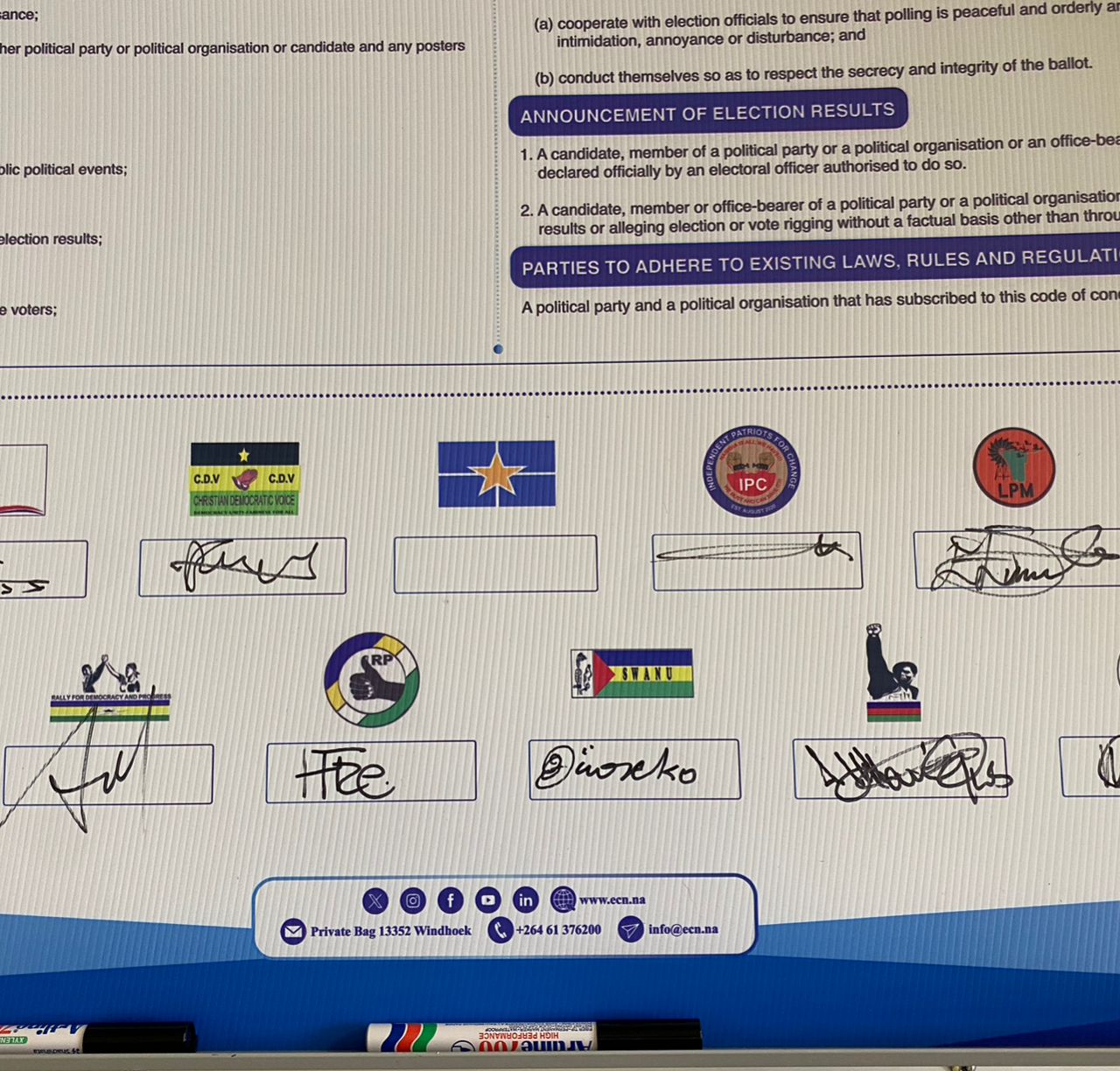The European Union (EU) is refuting claims of secrecy surrounding its partnership agreement with the Organisation of African, Caribbean and Pacific States (OACPS), asserting that an agreement has been accessible to the public on their official website.
This after activist Job Amupanda on Monday caused a stir when he posted the economic partnership agreement on social media, labelling it as a secretive, unfavourable agreement.
“It is a super agreement, it has a clause that says no other agreement signed already by Namibia and any European country will prevent the implementation of this secret agreement,” Amupanda wrote on social media when he posted the agreement.
Gosia Lachut, the EU charge d’affaires, clarified that the agreement in question, known as the Cotonou Agreement, involving 79 African, Caribbean, and Pacific countries and the EU, was initially established in 2000 for a 20-year term.
The agreement has been undergoing renegotiation since 2019, with a renewed agreement expected to be signed on 14 November in Samoa.
“Let me first make it very clear that there is no secrecy in this agreement, which has been negotiated over a long period since 2019, through the OACPS Secretariat, the negotiating team of the OACPS, including Namibian government representatives,” Lachut said.
The agreement covers the strategic priorities, such as growth and development, peace and security, environmental sustainability and climate change, and human rights, democracy and governance.
It is the framework used by EU member countries to guide free trade partnerships it enters into with these 79 African, Caribbean and Pacific countries.
“The new EU-OACPS partnership agreement is embedded in the spirit of partnership. Various countries might have various levels of engagement, Namibia is currently well positioned to benefit from this framework,” Lachut said.
Mines and energy minister Tom Alweendo also confirmed that negotiations for the new agreement took several years and a new agreement was initialed in 2021.
“This agreement was reviewed at the behest of the African, Caribbean and Pacific countries because they felt that it didn’t work as it was intended. This is not a secret agreement; nor is it between the EU and Namibia, but between the EU and 79 African, Caribbean and Pacific countries,” Alweendo said.
Meanwhile, Amupanda voiced concerns about specific clauses within the agreement. These include provisions obligating signatory states to facilitate unimpeded capital transfers by the European Investment Bank from these states to any destination and for OACPS countries to recognise and enforce judgements from the Court of Justice of the EU.
Political commentator Henning Melber said the agreement does not enforce foreign laws upon domestic policy, adding that it maintains the exclusive authority of OACPS countries like Namibia to independently shape their own policies.
“One can question the general economic partnership agreement treaty, but it is entirely within normative frameworks and identifies a lot of good governance priorities, to which many of the signatories (including Namibia, but also EU member states) hardly live up to,” Melber said.
He acknowledged that criticism can be directed at the fact that it imposes a framework preferred by the EU on these exchange relations, which in turn perpetuates asymmetrical power dynamics.
“However, this can be said also with regard to similar relations with other big powers such as China and Russia. To imply that this is a pact in secrecy borders on conspiracy theory. The economic agreement is publicly accessible and known,” Melber said.
Stay informed with The Namibian – your source for credible journalism. Get in-depth reporting and opinions for
only N$85 a month. Invest in journalism, invest in democracy –
Subscribe Now!






